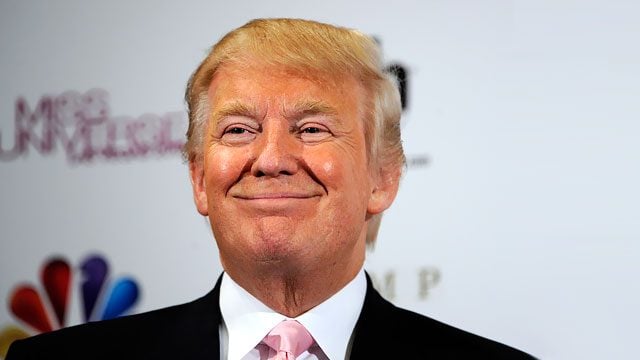This morning has revived a topic that had gone quiet for a while and so let me hand you over to Le Monde.
François Bayrou has chosen not to endure political instability but to precipitate it in order to better extricate himself from it. On Monday, August 25, the Prime Minister announced that a vote of confidence would be held in the National Assembly on September 8
So the attempt by the French government to pretty much carry on in spite of election results and indeed the period of the gilet jaunes means that another version of it is in trouble. Indeed if we stay with Le Monde regular readers will see some rather familiar things.
“Is there or is there not a national emergency to rebalance our public accounts and escape, because it is still possible, the curse of over-indebtedness?”, François Bayrou asked at a press conference, in front of an audience of guests (ministers, members of ministerial and central administration offices and the Secretary General of the Elysée, Emmanuel Moulin ). “”Our country is in danger because we are on the verge of over-indebtedness,” hammered the head of government, who was indignant that For twenty years, every hour has increased the debt by an additional 12 million euros.
It is hard not to have a wry smile at the French political class railing at a problem created by the French political class. But self-awareness is rarely a political strength. Of we look back we can see that we were on the case of there being trouble ahead.
Government Budget Balance (Feb) ||
€ -50.3B (Actual)
€ -21.2B (Previous) ( @YTradingAdvisor )
That was from the 3rd of April 2023 and if I recall correctly was from when subsidising energy bills was adding to the pressure on the public finances which had been already struggling.
The public deficit for 2022 stands at €124.9 billion, or 4.7% of gross domestic product (GDP), after 6.5% in 2021 and 9.0% in 2020.
Whilst there are elements here which are particularly French we have seen so many governments take the path of responding to the Covid pandemic via a central bank eased fiscal splurge followed by what would previously been regarded as a fiscal expansion as the pandemic retreated into the rear view mirror.This means that I also have these lyrics on repeat.
So let me get right to the point,
I don’t pop my cork for every man I see.
HEY Big Spender,
HEY Big spender!
HEY Big spender! ( Shirley Bassey)
The Euro area gives but also takes away
The giving part was the action of the ECB during the pandemic as it ran 2 bond buying programmes at once and drove many French bond yields into negative territory. So France was in fact paid to borrow for a while. Whilst that was a gain I think that it encouraged the political class to think that borrowing was free and my theme that the various political classes have yet to readjust to the new era of high bond yields is in play. Or if you prefer this is the hangover after the party.
The taking away is related to something that has had Euro area partners chuntering away over the years as I noted back in April 2023.
The figure for public debt might appear shocking at first glance, especially when set against EU fiscal rules outlined in the 1997 Stability and Growth Pact, which stipulate that national debt should not surpass 60% of GDP.
Budget deficit, meanwhile, should not surpass 3% according to the same guidelines. ( France24)
The Stability and Growth Pact was rather a misnomer as it has brought anything but. However it was imposed by France and Germany but over the years seems to have applied to everyone but them. Until recently Germany has been more fiscally conservative so it is France that has most played by its own rules. However this did change on the 30th of April last year when the European Commission imposed an excessive deficit programme or EDP. Let me bring us more up to date with its press release from the 21st of January this year.
According to the European Commission Autumn 2024 Forecast, the economy is expected to grow by 1.1% in 2024, on the back of a high contribution to growth of net exports and a sharp acceleration of public consumption.
That bit caught my eye because the part I have emphasised shows the exact opposite of what is the EDP. There is another influence here because the fiscal stimulus did not create much economic growth and reducing it cuts it further.
In 2025, real GDP is expected to increase by 0.8%, as the fiscal adjustment package aimed to reduce the public deficit is set to weigh on growth despite a more accommodative
monetary policy.
There are always nuances here and has the former French finance minister Christine Lagarde been in such a rush to cut interest-rates to try to help out here? Also we have a clear distinction with the United States which has got much more growth in return for its fiscal stimuli.Plus there is my theme of “Girlfriend in a Coma” for Italy were growth rarely exceeds 1% and thus if you have similar growth levels is it any surprise you get an Italian style debt crisis?
Overall the EDP is supposed to produce this.
the general government deficit is expected to decrease from 6.2% of GDP in 2024
to 2.4% by 2031. In its plan, France expects the deficit to fall below the 3% deficit reference
value earlier, in 2029, based on the plan’s assumptions.
Economic Growth
This is the crucial issue to my mind as it is the lack of economic growth that has driven these issues. Also if you have struggled to growth with what has been fiscal stimuli you are going to struggle even more in a period of austerity. The trouble is that such a policy can lead to a downwards spiral.
Also the French issue is as I pointed out on the 30th July.
Finally, inventory changes are once again contributing positively to GDP growth this quarter: +0.5 points after +0.7 points in the first quarter of 2025.
As you can see inventory rises explain 0.8% more GDP growth than there has been and what it gives with one hand it can take away with the other. That is reinforced by the way that the HCOB PMI business survey thinks that the private-sector has been shrinking.
France’s Composite PMI remained below the growth threshold in August, reinforcing the persistent trend of economic weakness that has defined the year so far. Although there was a slight improvement in the index compared to the previous month, a clear turning point is still not visible.
Financial Markets
Today the heat is on as the Financial Times points out.
The country’s blue-chip stock index, the Cac 40, fell 2.2 per cent in early trading on Tuesday, adding to a 1.5 per cent decline on Monday.
It is yet another rough day for the Financial Times narrative about money leaving the US in favour of Europe. Also the bond market is under pressure again.
France’s 10-year borrowing costs climbed as high as 3.53 per cent, approaching the post-Eurozone crisis high set in March. The additional interest rate over Germany’s benchmark Bunds reached almost 0.8 percentage points, close to its peaks during the past year’s political crisis.
That is only 0.1% lower than Italy which was supposed to be the bad boy/girl.
Looking further out the 30 year yield is 4.38%. By the way the ECB and Bank of France position must look truly awful. That rarely gets a mention.
Comment
There is much here that is familiar and pretty much a generic of these times. The French spin is a likely government collapse delaying and maybe stopping any effort to trim the deficit. Also there is the issue of defence spending with this from the BBC on the 14th July.
Macron called for France’s defence spending to rise by €3.5bn (£3bn) next year and then by a further €3bn in 2027.
Whilst the European Commission has President Von der Leyen wanting to turn a blind eye to this financial markets will not be fooled so easily. On the other side of the coin there should be plenty of business for the French defence industry which is a success. But what we are seeing here overall is a consequence of the lack of overall economic growth combined with ever more fiscal expansionism.


